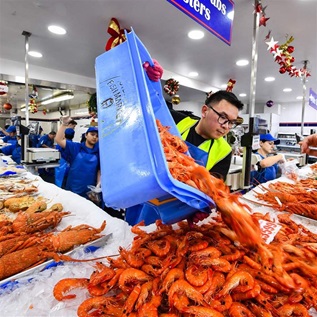Pacific Island Countries Step Up Shark Conservation Efforts
Pew applauds APIL resolution to protect threatened species
The Association of Pacific Island Legislatures (APIL) issued a resolution last week stressing the need for additional actions to protect sharks.
The resolution, reached at APIL's general assembly conference in Palau, states that the association agrees with “protective legislation in Palau, Hawaii, CNMI [Commonwealth of the Northern Mariana Islands] and Guam.”
The approved language asks “all member legislative assemblies of APIL to adopt similar legislation for a unified regional ban prohibiting the possession, selling, offering for sale, trading or distribution of shark fins, rays and ray parts.”
“Pacific islanders are again taking the global lead in initiatives to safeguard sharks from overfishing,” said Matt Rand, director of Global Shark Conservation for the Pew Environment Group. “The decision reached in Palau, home of the first Pacific shark sanctuary, underscores the growing momentum for conserving these animals across the region and sends another signal to the rest of the world that more needs to be done.”
Trade in shark fins has been banned by APIL members from Hawaii, Guam and the Northern Marianas, and it has been suspended by the Marshall Islands.
“The shark fin ban in the CNMI was the most important legislation I introduced in my 20-year career as a public servant,” said Representative Diego T. Benavente, the commonwealth's former House speaker and lieutenant governor. “It is imperative that this movement to protect sharks spread from island to island, nation to nation.”
Sharks, which grow slowly, mature late and produce few young during their lifetimes, have difficulty recovering from overfishing and depletion. These apex predators, living at the top of the food web, are key to maintaining the health of ocean ecosystems. Yet up to 73 million are killed every year, primarily for their fins.
“We applaud all members of APIL for responding to the plight of the region's sharks,” Rand said. “We support their efforts and hope that their leadership continues to inspire other coastal nations to protect these important animals.”
The member states of APIL are the Northern Marianas, Guam, Palau, Yap, Chuuk, Pohnpei, Kosrae, the Marshall Islands, Kiribati, American Samoa, Nauru and Hawaii. The exclusive economic zones of all APIL member nations total an area larger than the land masses of the continental United States and European Union countries combined.











